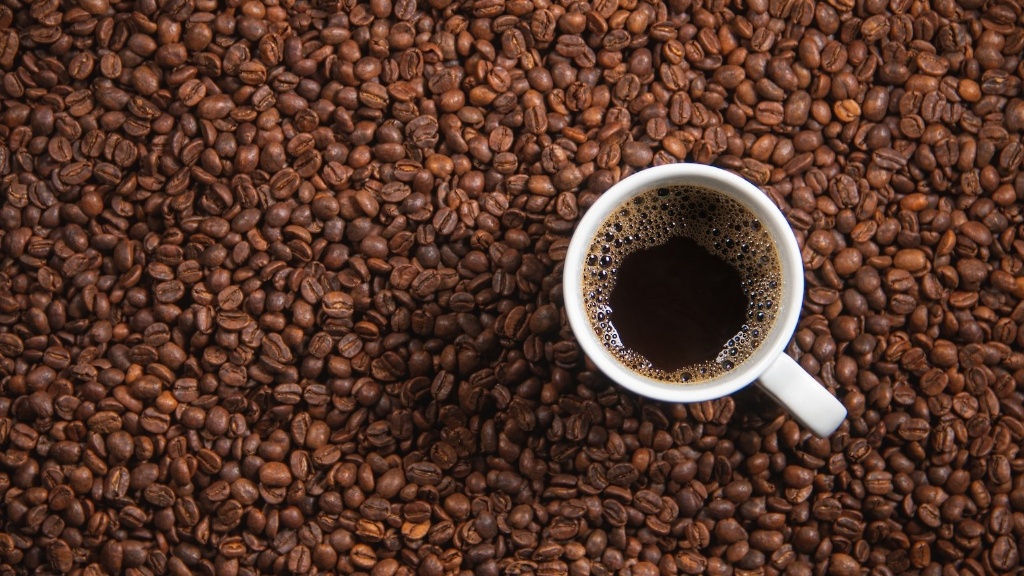Physiological Responses To Caffeine
Caffeine – commonly found in coffee – is a stimulant which is absorbed into a person’s bloodstream, leading to physiological reactions. These reactions can depend on an individual’s body size, weight, and body composition. However, some of the general effects of caffeine consumption on the body include faster heart rate, higher brain activity, increased alertness and energy, and an increased rate of metabolism.
Digestion can also be affected, particularly when a large amount of caffeine is consumed. Caffeine can delay the digestion process, leaving caffeine present in the mother’s bloodstream for longer. As a result, this could mean that some of the caffeine could be transferred to the baby through breastmilk.
Caffeine Transfer To Infants Through Breastmilk
With regards to caffeine transfer to infants through breastmilk, it has been observed that caffeine is transferred from the mother to her baby within thirty minutes of ingestion. The amount of caffeine transferred to the baby is, however, very small and is normally 0.06% of the mother’s intake of caffeine.
It is important to note that newborn infants are not able to process caffeine at the same rate as adults, meaning that the amount that is transferred to the baby is likely to be more prominent and hinder their sleep. As a result, it is recommended to limit a mother’s caffeine intake when breastfeeding, since this can help prevent sleep disruption in infants.
Mothers Need To Reduce Caffeine Consumption
It is clear that, during breastfeeding, mothers need to reduce their caffeine intake. It is commonly recommended that mothers reduce their caffeine consumption to less than 300mg per day. This equates to up to three 8-ounce cups of coffee, or six 12-ounce cans of soda.
It is also worth noting that caffeine is not only found in coffee and soda, but is also present in certain teas and chocolate. Therefore, if mothers wish to limit their caffeine intake and consequently reduce the amount transferred to their baby, it is important to consider all sources of caffeine intake.
How Long After Drinking Coffee Can I Breastfeed?
As aforementioned, caffeine can be absorbed by the mother’s bloodstream and pass to their baby through breastmilk. As such, it is recommended to wait approximately one hour after consuming coffee before breastfeeding. This usually allows the body to metabolise sufficient amounts of the caffeine so that there is only a small percentage remaining.
In situations where a mother consumes a large amount of caffeine, it is suggested to wait two hours after drinking coffee before breastfeeding. This is due to an increased level of caffeine being present in the mother’s bloodstream and the fact that it may take longer for the caffeine to fully metabolise.
Consult Your Doctor If You Are Concerned
If a mother is concerned about caffeine transfer to their baby through breastmilk, it is recommended that they speak to a doctor or healthcare professional. This will provide them with a greater understanding of the effects of their caffeine intake and allow them to understand more clearly the ways in which they can reduce the risk of harm to their baby.
It is also possible to reduce the risk of caffeine transfer to a baby through breastmilk by avoiding the ingestion of caffeine for several hours before breastfeeding. This will ensure that the amount of caffeine present in the mother’s bloodstream is minimal, reducing the amount passed to the baby via breastmilk.
Decaffeinated Alternatives
In certain circumstances, a mother may find it easier to make a switch to decaffeinated drinks or beverages, including tea and coffee. These alternatives are specially formulated to minimise the amount of caffeine present, enabling a mother to reduce their caffeine intake without changing their daily routine. It is important to note, however, that these decaffeinated beverages may still contain low levels of caffeine, making it advised to consult a doctor or healthcare professional if concerned.
Although there are many decaffeinated beverages available, this may not be an appropriate solution for some due to a lack of flavour and palatability. As such, some mothers may opt to reduce their overall caffeine intake, rather than making a switch to decaffeinated alternatives.
Know What Is Safe
When breastfeeding, it is important to understand which beverages are safe to drink and in what quantity. As aforementioned, it is recommended to limit caffeine consumption to less than 300mg per day. It is also important to wait a minimum of one hour before breastfeeding after consuming beverages containing caffeine, such as coffee or tea.
If a mother exceeds the recommended daily amount of caffeine or does not wait sufficiently before breastfeeding, there is a risk of caffeine transfer to the baby through breastmilk. As a result, it is important to be aware of the effects of exceeding these recommendations.
Natural Alternatives
For those who are seeking to reduce their caffeine intake whilst breastfeeding, there are a range of natural alternatives that can be adopted. Many mothers opt to drink herbal teas during breastfeeding, as this provides the body with additional energy, whilst also remaining caffeine free. In addition to this, fruit juices, such as orange juice, are also a great source of energy and can help provide additional nutrition that may have been lacked over the day.
If a mother requires an additional source of energy, they may also opt to consume a light snack, such as a piece of fruit or a handful of nuts and seeds. These snacks contain naturally occurring sugars which can provide energy whilst avoiding caffeinated beverages.
Beware Of Detoxing
A mother should also be aware of detoxing whilst breastfeeding. This is a dangerous practice, as the body may be subject to harmful toxins which can pass from the mother to the baby through breastmilk. As a result, it is recommended to limit the use of detoxing methods, or to completely avoid such regimes whilst breastfeeding.
In order to maintain optimum health and reduce the risk of adverse reactions from toxins, it is advised to drink plenty of water throughout the day. Water not only helps to stay hydrated, but can also aid digestion and help the body to remove toxins.
Takeaways
When it comes to drinking coffee and breastfeeding, it is recommended to limit caffeine consumption to less than 300mg per day. It is also important to wait at least one hour after consuming such beverages before breastfeeding, as this allows the body to metabolise the caffeine and reduce the risk of transfer through breastmilk. If concerned, it is advised to consult a health professional who can offer more tailored advice.




